
When IO Interactive came to developing the early beginnings of what would become Hitman: World of Assassination in 2013, it was acutely aware of how it needed to drive the series forward from Hitman: Absolution.
“I think that the classic volume of games were extremely successful in establishing the universe, the character, and the premise of the series,” IO Interactive Chief Creative Officer Christian Elverdam tells me.
“Codename 47 is so much ‘the first one’; it’s a little rough around the edges, and there was a little less onus on the fidelity of the gameplay, like ‘do you know why you got spotted? Can you shoot a gun?’ How does the game actually play, if you will. That became the obsession over the years. Hitman: Absolution really wanted to answer that question of how you play in a way that feels what I would expect of a high-quality game.”
He added: “And then when we started with World of Assassination in 2013, we were in need of finding Hitman. We were in need of redefining what it should be.”
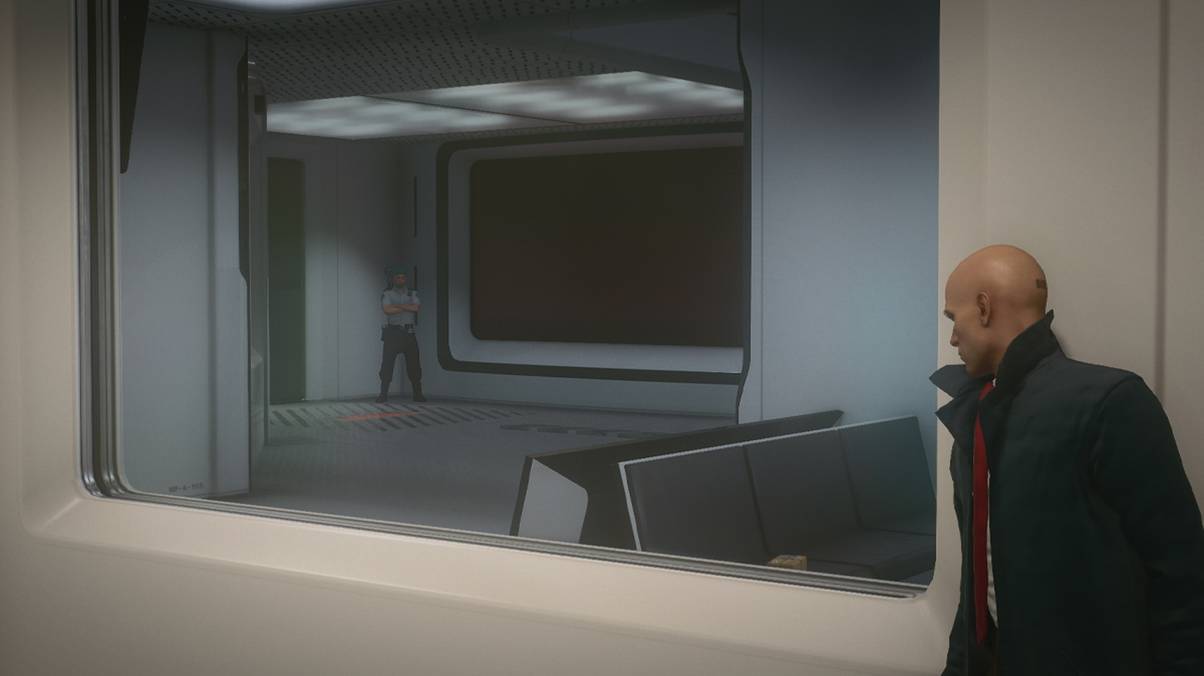
Redefining Hitman
IO Interactive is currently in the final months of developing 007: First Light, the first non-Hitman game the studio has developed since Kane & Lynch 2: Dog Days in 2010.
In our conversations regarding the 25th anniversary of the Hitman series, which occurs today, 19 November, Elverdam was joined by IO’s Michael Vogt and Toke Krainert to discuss the franchise at length, where Hitman found its initial success, and where IO will be taking the series in the future.
Despite putting focus on the upcoming James Bond game, which is slated for release on 27 March 2026, IO still very much has Hitman at the forefront of its mind, and has “exciting” plans for more content coming to the game in the future.
“Hitman is extremely successful today,” Elverdam told me. “The last few years have been extremely successful. And while we’ve been committed to building James Bond from the ground up, we still have a team working on Hitman building all these new modes and targets. While that’s not a big instalment in terms of ‘here’s the next game’, it’s actually extremely well received. We have a lot of people coming in and enjoying it. We’re doing better than ever in terms of how many people play Hitman.”
Established in 1998, IO Interactive released its first game, Hitman: Codename 47 two years later in 2000. It was a stealth action game where you played as Agent 47, a genetically-enhanced clone working for the ICA (International Contract Agency), who is sent on various globetrotting missions to eliminate different targets.
What particularly makes the Hitman games so enjoyable, particularly in the later entries, is their dedication to player freedom. You have a large number of tools at your disposal, and plenty of different methods to approach your target, eliminate them, and leave without a trace.
Do you sneak in through a back entrance, grab a suitable disguise, and find an audience up close and personal with your target? Or do you climb a drainpipe, sneak in through the roof, and get your target while they’re isolated and alone? Or perhaps you find a way to approach your target without the need for disguises or covert wall-scaling, and can instead get your target alone without ever needing to engage with those mechanics.
Part of the challenge that comes with Hitman’s puzzle-box design is looking for those opportunities. If you simply follow the opportunities that IO Interactive has laid out for you (called “Mission Stories” in the game’s latest iteration), then you might find each mission to be rather easy. However, thinking outside the box, manipulating NPC routines in unexpected ways, and searching for opportunities that IO hides out of plain sight, can result in some of the most interesting experiences the game has to offer.
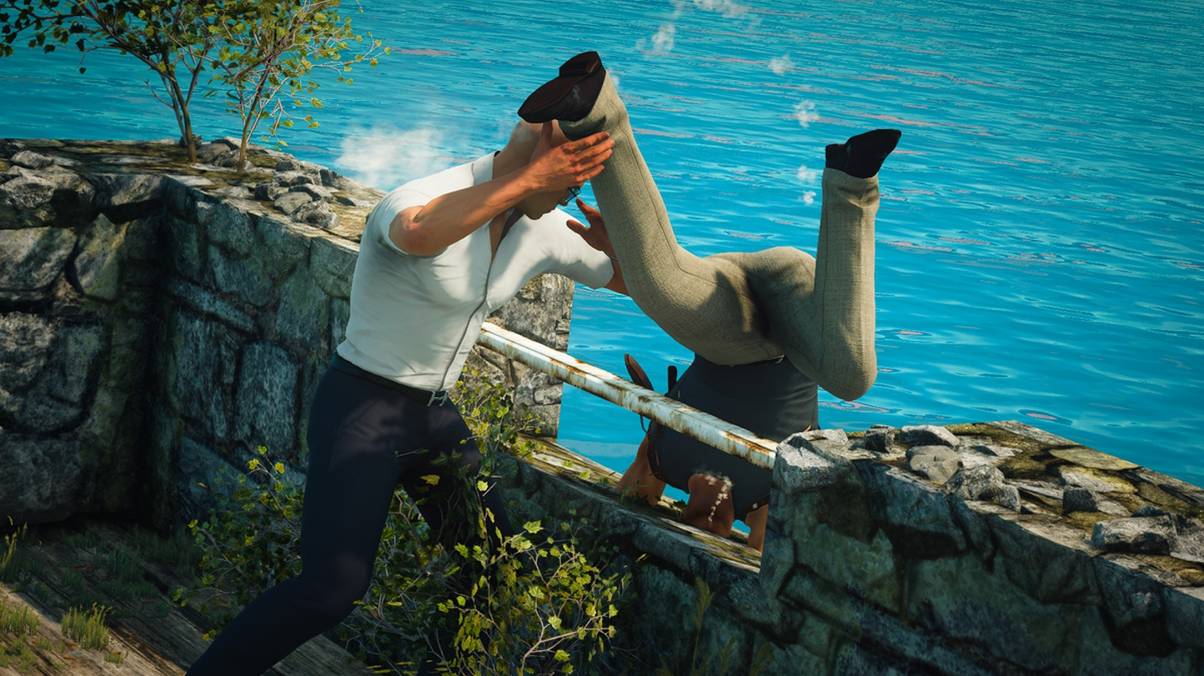
“As a level designer, that’s very interesting to work with”
“When I started [at IO Interactive], I really liked the idea that Hitman was going for with the sandbox and open-endedness, and the way they intertwined narrative and gameplay,” Lead & Senior Technical Designer Toke Krainert tells me. “Hitman has evolved so much over the years. It’s taken some detours, but eventually we’ve landed in a place that’s very recognisable. If you’ve played games like Blood Money back in the day, we’re definitely building on all that legacy.”
Krainert later added that, “When we develop Hitman missions, our starting point is rarely the same as it would be if you’re developing a more linear, narrative-driven game. We usually start thinking in circles, or volumes, or areas, rather than in a line. It’s always about designing with the targets in mind, and the areas they inhabit. And then building on top of that, building rules for all the different plotlines and gameplay that you want.
“Then as you’re doing that, eventually thinking about how the player will approach this the first time, and how do we balance it so they do things differently the next time, and how do we make room for a bonus mission that needs this content to happen, and it becomes more of this puzzle that extends from whatever is the centrepiece of the mission to a sequence of events that you expect to unfold. As a level designer, that’s very interesting to work with because it’s a different kind of challenge than building more linear games.”
IO has been no stranger to experimenting with the series’ formula in different ways over the years. Hitman: Absolution began this with the introduction of Contracts, a game mode that repackaged existing maps so that community members could create their own missions. Any NPC in a given location could be tagged as a target, and the contract creator can also create unique rules and conditions for a potential player to stick to (or ignore).
This feature was expanded upon for the 2016 reboot, and became a popular mode for players to engage with, to the point where IO continues to feature player-made contracts on the game’s main menu every month.
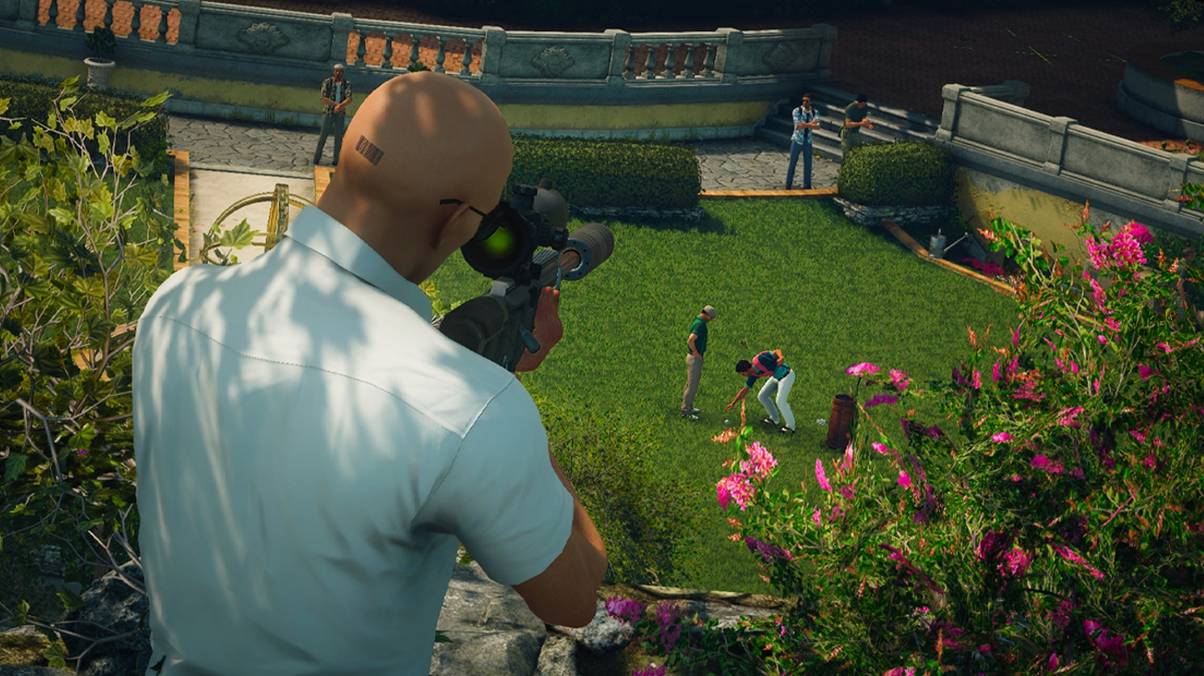
The 2016 reboot, now part of what is known as the first part of the World of Assassination trilogy, also introduced a lot of other new experiments. For example, the Escalation and Elusive Target modes. Like contracts, these were new experiences which took the spirit of the series and presented it in new and interesting ways.
The idea behind these modes was to give the game an extra bit of longevity, ensuring that these wide open spaces were being utilised to their fullest potential. Sapienza, from the first World of Assassination game, for example had many areas that were not used at all by the main mission, but were later used as part of the bonus missions or content.
This content was delivered in a live service format, something that was still relatively uncommon ten years ago for a single-player game. It meant that the game required a constant internet connection to access the content, as IO could consistently add new missions and items without having to require players to download a new patch each week.
Designing live content for a single-player game
“We had to discover what worked and what didn’t with doing live content for a single-player game,” Krainert says. “When you have a game that is not just about playing a story from start-to-finish, or playing a set of challenges once and being done, when you have something that is more explorative and is about trying things over and over again, it makes a lot of sense to do live content as a way of engaging with the community. Seeing what they’re doing and what they enjoy, and then gradually giving them more content to play with as they go along. There’s no reason why a game like Hitman has to be one and done. It can grow as much as any game really.
“What we tried at the beginning, for example, was doing these really small tidbits of live content. Like having an elusive target that was active for only 48 hours. It was very basic, it was meant to be played once and then forgotten. Then, as time went on that became more ambitious. We found that we could create deeper, more meaningful, and replayable live content. So we started adding that.”
Later Hitman releases have also served as a vehicle for these experimental game modes and live content. Hitman 2 saw the developer’s first experiments with multiplayer following the company’s breakup with Square Enix, adding a co-operative Sniper Assassin mode, as well as the competitive Ghost Mode, where two players went head-to-head to be the first to eliminate a series of targets. While both experiences were initially well received by fans, the modes proved to be rather unpopular in the long run and were later cut from Hitman 3.
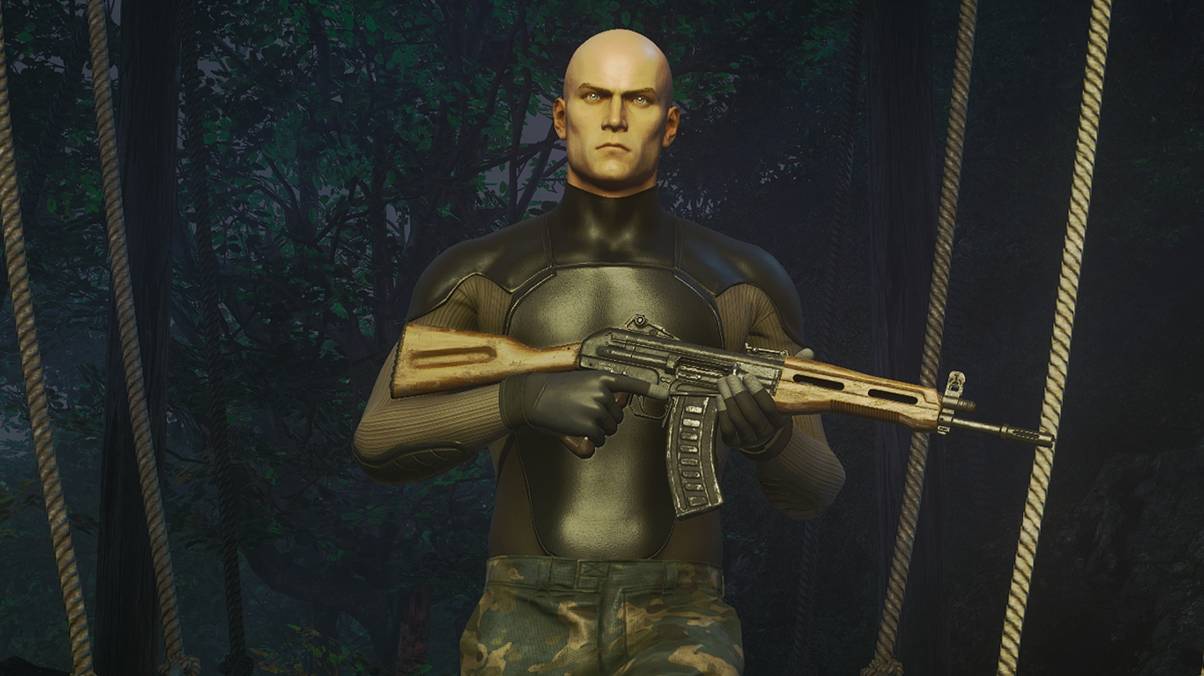
It wasn’t until the release of the Freelancer mode in 2023 where IO had realised the true potential of an alternative game mode that would give Hitman a seemingly endless amount of content. The mode is essentially a roguelite experience, giving you procedurally generated targets, items, and complications presented in a campaign-like format. Considering the amount of variables that can be changed on the fly by the game, it makes the experience practically infinitely replayable.
“The whole idea of the World of Assassination was to build a world that could expand. Instead of just building one game, and then another, there was the idea these games would fill a cohesive hole that becomes almost like a platform you can play with. And so Freelancer is a very elegant layer we built on top of the World of Assassination, but it completely redefined what it feels like to play the game. It’s more true to the everyday professional assassin life, for lack of a better word, where there’s not a huge overarching story but it’s more about how do I manage this series of missions.”
Co-op mode is coming
However, Freelancer doesn’t appear to be the end of it, as IO has also announced a new co-operative update will be coming to the game in the future. Unlike the developer’s previous multiplayer experiments, this new experience will work by allowing players to explore the missions from the main game with a co-op partner, bringing with it all the usual Hitman shenanigans.
“We announced it because we think it’s exciting,” Elverdam says. “The structure of Hitman is extremely session-based. You can see each location as a session, almost like a multiplayer session but playing alone. And then we did some early tests where we started having two agents in there. There are so many moments that you have in the Hitman sandbox that are, I would humbly say, even better when you’re with a friend. In the fiction of the universe, everything is silent even when someone slips on a banana peel or falls from a balcony, but in reality it’s anything but that. That kind of core game feel is just extremely appealing in co-op, in my mind.”
“There will definitely be some interesting challenges there,” Krainert adds. “Hitman is already very open-ended and you have a lot of different ways of approaching these challenges. We never design a puzzle with a specific solution as the only one. So now that you get two players on the field, some of these puzzles and levels need tweaking, and that’s something we’ll be looking at moving forward.”
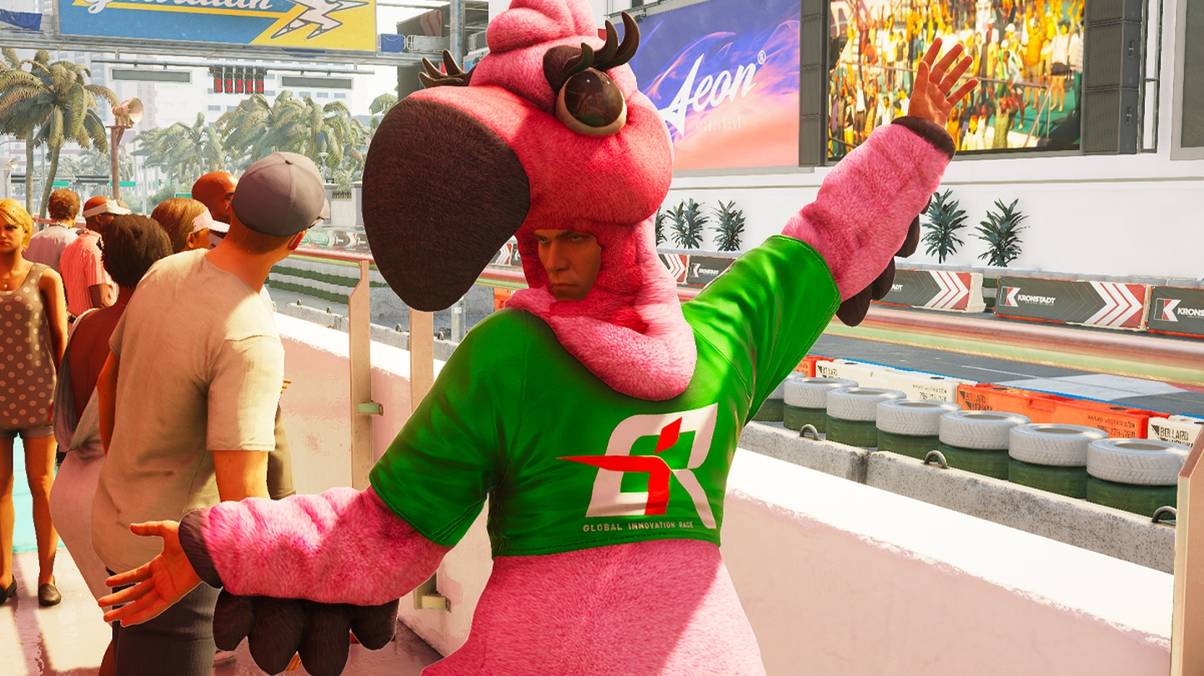
As seen on a roadmap revealed earlier this year, re-releases of the original Hitman games are seemingly in the pipeline, with the PC-exclusive Codename 47 also included in this lineup. Indeed, IO Interactive has shown more willingness in recent years to bring its older library of games to newer platforms, as shown by the release of Hitman: Blood Money and Absolution on handheld platforms like mobile and Nintendo Switch.
While IO did not comment on the collection of the first three games, it’s assumed that these re-releases will be part of the 25th anniversary celebrations, and will serve as the most accessible way to play these games on current-gen platforms. And with a lot of attention brought to Absolution, which was once seen as the “odd one out” of the series due to its focus on a more cinematic style and smaller levels, it’s also seeing a little bit of a cultural re-appreciation among Hitman fans.
Writing 47
On writing Hitman: Absolution and the World of Assassination games, writer Michael Vogt wanted to make sure the games were paying respects to the classic era of the series, while also bringing in a new tone to modernise it.
“We took a more mature approach to the subject matter,” Vogt says about Hitman: Absolution. “And when it was time to do the trilogy, it seemed like a thing that was happening across the industry in general. A lot of the games that were coming out stopped feeling like B-movies and became a bit more of a mature and professional quality of fiction.
“It’s an interesting title to write,” Vogt added, regarding the series as a whole. “Because it doesn’t actually lend itself very well to storytelling to begin with. You have to jump through a lot of hoops and invent new ways of telling stories that you don’t have to do in a standard linear game.”
And part of what makes the narrative of Hitman work, in a way that many fans agree, is the rather excellent voice work done by actor David Bateson, who has voiced Agent 47 in every game since the very beginning. His deadpan delivery of the character’s lines, even when in a rather outlandish situation, fits with the series’ ethos of making something so ridiculous also seem so cool to see play out.
“He’s a wonderful guy, very cool,” Vogt says about Bateson. “For him he’s been with the character from the series origins, and so in some ways he’s lived with that part for so long, but on the other hand he’s also extremely easy to work with and very curious about what we want to do and how we got about it.
“Part of his background is also satire and humour, so he also knows what he’s doing in terms of the deadpan dryness of the character versus what it actually means when it happens in the game. Some of those conversations in Miami, wearing the flamingo outfit for example, and it’s just priceless. It’s extremely dry but it’s obviously hilarious when you’re there. It’s very hard to act that subtle, but there it is, this tiny bit of personality but otherwise completely deadpan. That’s 47.”
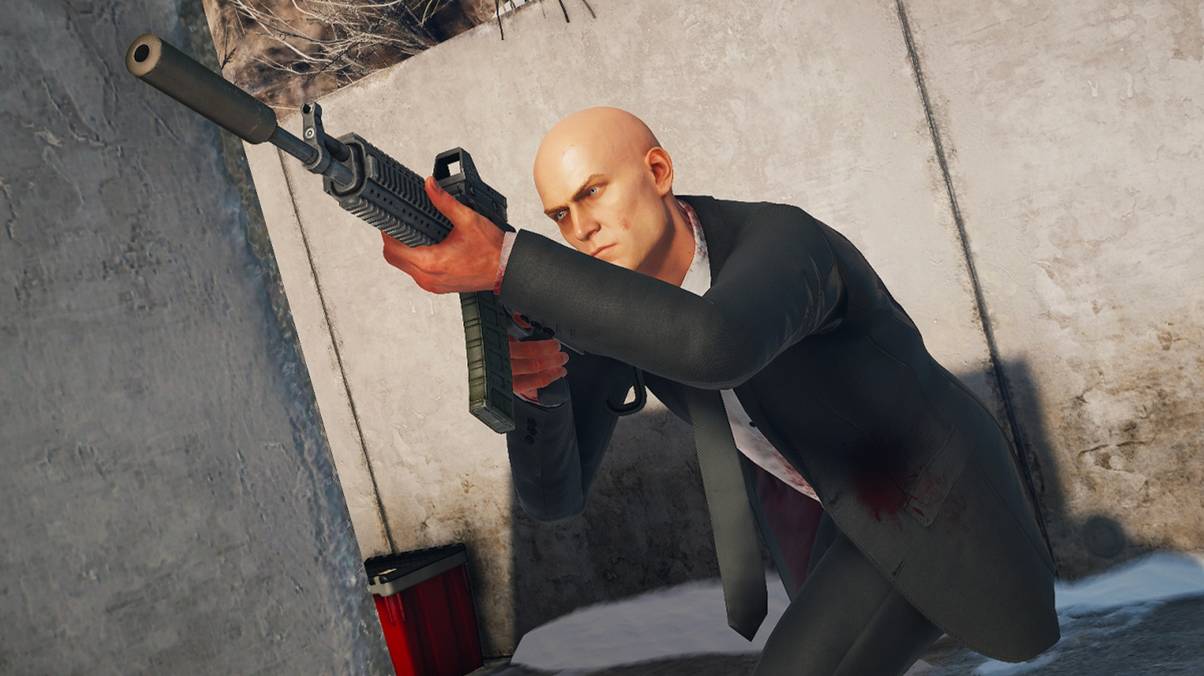
As for whether IO Interactive is planning a new Hitman game, the company is far too busy with finishing 007 First Light for the time being. Elverdam tells me the development team at IO has ideas of where to take Agent 47 next, but that he is “unsure of what that would look like”.
“We left the story in a way where it’s very open-ended in the way it could go. That’s on purpose, because we wanted a way to bring back the classic storytelling of the original games. Back then if you were writing a Hitman game, you were not thinking about an IP that would last 25 years. So there were a lot of loose ends and the character could go in all sorts of different ways. We wanted to try and create this wrapper that would gently embrace the past, move it in a way where we’re thinking about story and character, and then end it in a place that feels very open.”
Going back to the question of IO needing to find Hitman, and how to redefine it, Elverdam stated, “I think we don’t have that need right now. I think we know we are. Now it’s more about being curious, and finding a way to make it constantly interesting and fun to be part of that universe.”
We’ll hear more about IO Interactive’s 25th anniversary plans for the Hitman series in the coming weeks and months. As for what we’ve seen so far of 007 First Light, it’s shaping up to be a real spiritual successor to what made Hitman: World of Assassination great by integrating the agent fantasy, while also paying respect to James Bond’s 70-year legacy as a franchise.



This is an exciting celebration of the Hitman series! It’s fascinating to see how the franchise has evolved over the years, and I look forward to what the future holds for Agent 47. Great insights from IO Interactive!
evolved over the years. I agree, the blend of stealth and strategy has kept players engaged. It’s also interesting to think about how the advancements in technology might shape future titles in the series.
Absolutely! The evolution of gameplay mechanics really showcases how IO Interactive has adapted to player feedback and changing gaming trends. It’s fascinating to see how they’ve incorporated new technologies while staying true to the core stealth elements that fans love.
I completely agree! It’s fascinating to see how the series has embraced new technologies and player feedback over the years. The introduction of more open-ended levels in recent titles really allows for creative problem-solving, which adds a fresh dimension to the classic stealth gameplay.
You’re spot on! It’s impressive how the Hitman series has evolved, especially with its shift toward more open-ended gameplay and player choice. This adaptability not only keeps the game fresh but also allows for unique player experiences in every mission.
Absolutely! The transition to more open-ended levels really allows for creative problem-solving. It’s fascinating to see how player choice has become a central theme, enhancing the replayability of each mission.